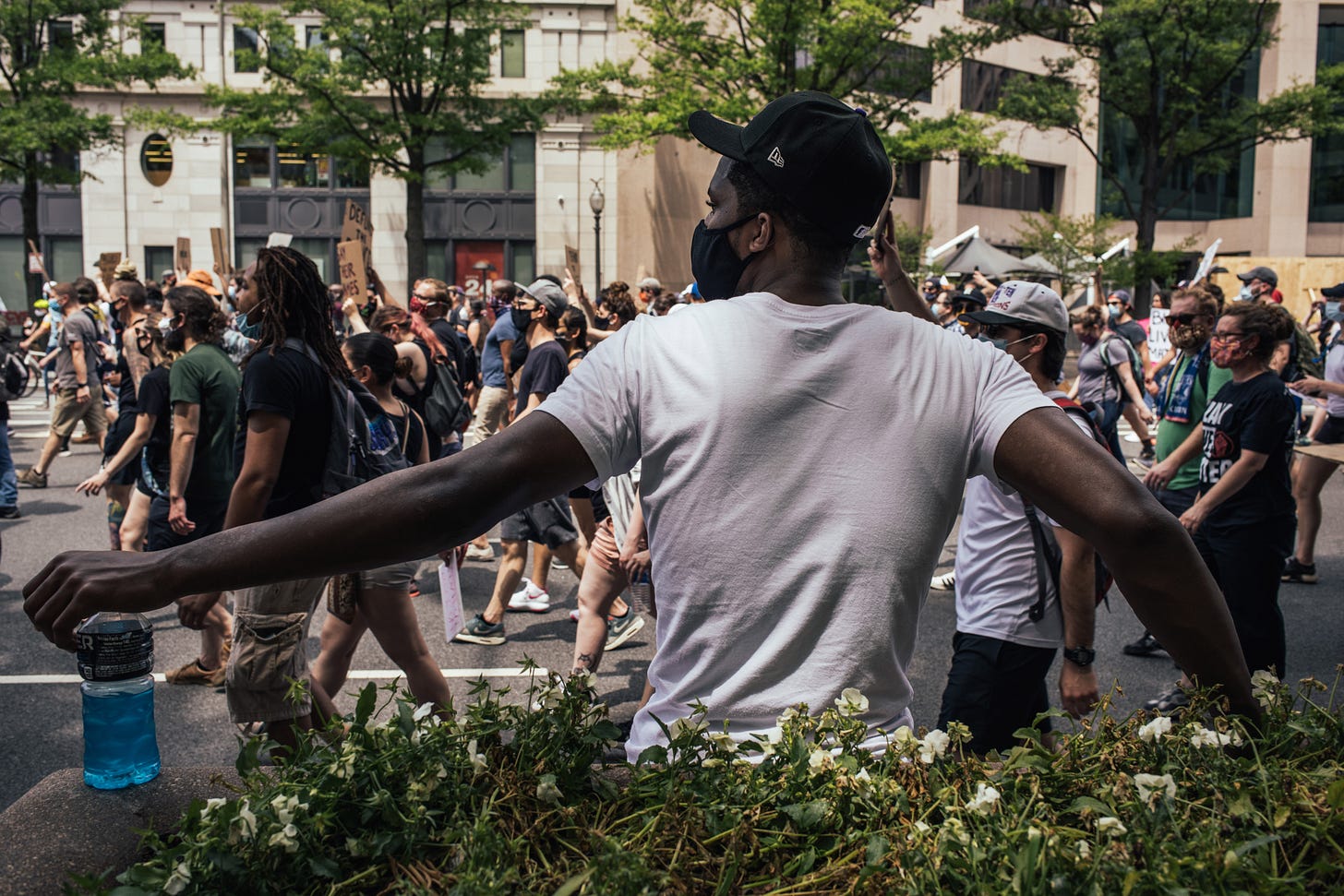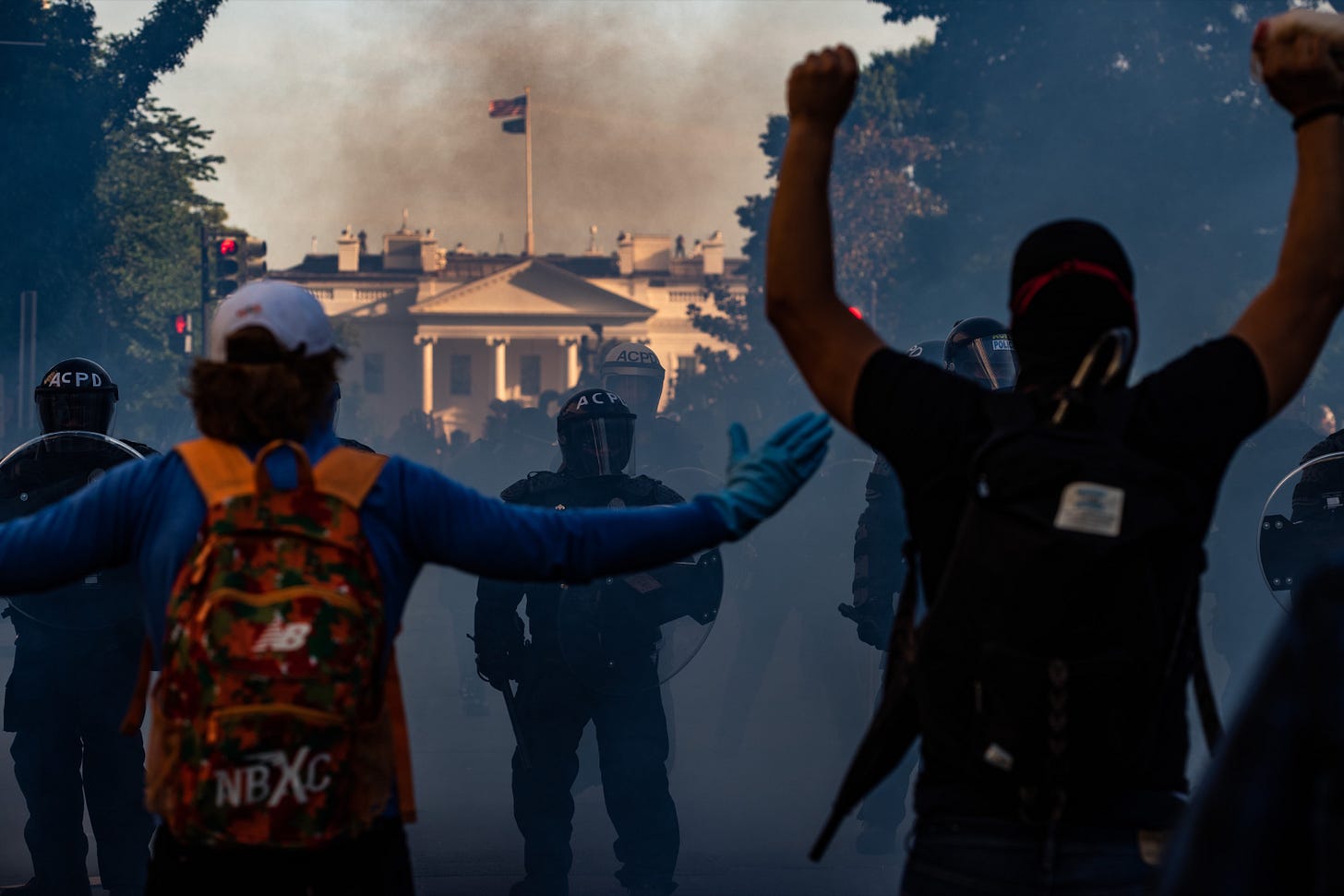Greetings Light Readings friends, it’s been awhile. Two months ago, we were in the midst of a worldwide pandemic and today, as I send this out, we’re… still in the midst of a worldwide pandemic, but one that has begun to wane in most of the world, but not here.

America is an old house. We can never declare the work over. Wind, flood, drought and human upheavals batter a structure that is already fighting whatever flaws were left unattended in the original foundation.
When you live in an old house, you may not want to go into the basement after a storm to see what the rains have wrought. Choose not to look, however, at your own peril.
The owner of an old house knows that whatever you are ignoring will never go away. Whatever is lurking will fester whether you choose to look or not.
- Isabel Wilkerson, America’s Enduring Caste System
When the world changes and you’re left feeling guilty and gaping at the insignificance of what you've done up to this point, it is a challenge to take a step forward, to try to contribute to the course correction our nation is currently on.
I've spent weeks in a holding pattern, confident only that I had little to add to a national reckoning on race and equality. I spent many days and nights photographing the rage and chaos in DC that burned bright, then the weeks that followed. Every single day, at Black Lives Matter Plaza in DC, people show up.

So what does a white photographer, like myself, do? My privilege is the privilege of not having to ever experience inequality or racism directly, of rarely being made aware of my own privilege(!). My privilege is being able to pass through the world without cost, with little judgment, of not having to bear the accumulated weight of a thousand minor slights, of never experiencing the outcomes of unconscious bias and having to wonder if I was ever judged not on my own merits, but by the color of my skin.
Reckoning with this feels like trying to develop a new sense.
Because of that, there is the danger of letting these concepts be abstract, not urgent. As someone who came to photography through photojournalism, I've always valued a certain neutrality, a skew to the center. But I'm no longer able to see two sides to the treatment of Black people in our country. There's no middle ground to take here, I'm unabashedly on the side of the demonstrators, on the side of profound and lasting change to our country.

I see systems that are designed to lock inequality in place. When I began documenting the events in DC, my photos were taken in anger. I saw security forces fire tear gas, flash grenades and rubber bullets at protesters without warning.
In the first few days of protests, I saw police use force in an absurdly imbalanced way, with the expectation that their violence would not be met with violence back. I marveled at the courage of protesters who urged those around them to stay calm, to not run as the police marched towards them in riot gear in order to allow the President to stand in front of a church.

So now I'm listening, I'm reading, and I'm trying to stay out of the way while also trying to doing the one thing I feel able to contribute. I deeply admire the Black photographers who are out there doing this same work, but risking more than me to do it. Photographers like Morgan Smith, Dee Dwyer (here in DC) and Devin Allen in Baltimore.
Currently
📸🤦🏻Read and signed the Photo Bill of Rights. The conversations that have sprung up online when it was released have mostly split along lines of race and age. The older generation of photographers seem unwilling to acknowledge the power imbalance of holding a camera and furiously unwilling to even contemplate the idea that we might consider issues of consent when make photos of our subjects (and can we sit with that word for a moment?).
💪🏻😷This interview with Jia Tolentino has so much worth quoting for its sheer clarity in how we might absorb this moment. Here are a few parts I especially liked:
TOLENTINO: I’m also suspicious of the way that Not Being Racist is a project that people seem to be approaching like boot camp. To deepen your understanding of race, of this country, should make you feel like the world is opening up, like you’re dissolving into the immensity of history and the present rather than being more uncomfortably visible to yourself. Reading more Black writers isn’t like taking medicine. People ought to seek out the genuine pleasure of decentering themselves, and read fiction and history alongside these popular anti-racist manuals, and not feel like they need to calibrate their precise degree of guilt and goodness all the time.
INTERVIEW: What prevents you from giving up hope in the human race?
TOLENTINO: I don’t feel that I have the right to consider giving up hope. To do so would mean abandoning or failing to recognize the work that’s being done—the strikes that are being organized, the doctors and nurses who are keeping people alive and fighting to get their patients out of prison, the millions of people who have had to risk their lives and go to work in the pandemic regardless of whether they have hope or not. I appreciate Mariame Kaba’s idea that hope is a discipline. It’s a choice—it can’t be a matter of fluctuating affect, whatever viral news story or TikTok gave you hope in people or took it away. In general, I try to expect nothing and hope that everything is possible. I want the courage to need very little and demand a lot.
Thank you for being here and for your kind notes.




your newsletter is one of the most meaningful and timely items to pop into my mailbox these days. Thank you.
Thank you Stephen.